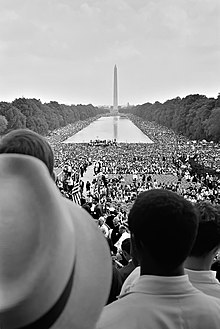
Beginning with the murder of Emmett Till in 1955, photography and photographers played an important role in advancing the civil rights movement by documenting the public and private acts of racial discrimination against African Americans and the nonviolent response of the movement. This article focuses on these photographers and the role that they played in the movement between 1954 and 1968, particularly in the South.